|
presents THIS DAY IN GAY HISTORY based on: The White Crane Institute's 'Gay Wisdom', Gay Birthdays, Gay For Today, Famous GLBT, glbt-Gay Encylopedia, Today in Gay History, Wikipedia, and more …
Collected by Ted November 30 [{(o)}]|[{(o)}]|[{(o)}]|[{(o)}]| [{(o)}]|[{(o)}]
1554 – Sir Philip Sidney, English courtier, soldier, and writer (d.1586); the English courtier and poet was one of the leading lights of Queen Elizabeth's court and a model of Renaissance chivalry. His Apostrophel and Stella is one of the great sonnet sequences in English and was inspired by his love for Penelope Devereaux, even though he later married Frances Walsingham. Lest one confuse Renaissance "love" and "marriage" with the modern versions, it should be pointed out that Penelope Devereaux was 12-years old when Sidney fell in love with her, and that Frances Walsingham was 14 when she was married to the 29-year-old courtier. Marriages were arranged then and not made in heaven, more a real estate transaction than a spiritual love match. Sidney, himself, was in his teens when the Huguenot writer and diplomat Hubert Languet fell in love with him. Languet was 36 years his senior, lived with him for a time, and, when they parted, wrote passionate letters to him weekly. In his youth, Sidney was strongly attached to two young men, Fulke Greville and Edward Dyer, and wrote love verses to them both, a point not lost on gay John Addington Symonds when he wrote Sidney's biography. Sidney died in battle at the age of 32. According to the story, while lying wounded he gave his water-bottle to another wounded soldier, saying, "Thy necessity is yet greater than mine". This became possibly the most famous story about Sir Phillip, intended to illustrate his noble character.
1624 – In the Virginia Colony, Richard Cornish was hanged for sodomy for allegedly making advances on an indentured servant, William Couse. His conviction and execution, angrily contested by his brother and others, is the first to be recorded in the American colonies. In 1993 the William and Mary Gay and Lesbian Alumni created the Richard Cornish Endowment Fund for Gay and Lesbian Resource.
1864 – Died: Major General Patrick (Ronayne) Cleburne (b.1828), who was an Irish American soldier, best known for his service in the Confederate States Army during the American Civil War. Born in County Cork, Ireland, Cleburne served in the 41st Regiment of Foot of the British Army after failing to gain entrance into Trinity College of Medicine in 1846. He emigrated to the U.S. three years later. At the beginning of the Civil War, Cleburne sided with the Confederacy. He progressed from being a private soldier in the local militia to a division commander. Cleburne participated in many successful military campaigns, especially the Battle of Stones River and the Battle of Ringgold Gap. His strategic ability gained him the nickname "Stonewall of the West". According to Randy Shilts ("Conduct Unbecoming"), the Major General might have earned the "Stonewall" appellation for less martial reasons. According to Shilts in his bestselling Conduct Unbecoming the Major General was a 'life-long bachelor' and wrote of the great love of his life: Cleburne's relationship with his twenty-two year old adjutant, Captain Irving Ashby Buck, drew the notice of the general's colleagues. Cleburne's biographer John Francis Maguire wrote that the general's 'attachment' to Buck 'was a very strong one' and that Buck 'for nearly two years of the war, shared Cleburne's labors during the day and his blankets at night.' Buck himself wrote that the pair were 'close and confidential. I habitually messed with him and shared his tent and often his blankets." Prior to the campaigning season of 1864, Cleburne became engaged to Susan Tarleton of Mobile, Alabama. Their marriage was never to be, as Cleburne was killed during an ill-conceived assault (which he opposed) on Union fortifications at the Battle of Franklin, just south of Nashville, Tennessee, on November 30, 1864.
1869 – Konstantin Somov (d.1939) Russian Artist associated with the Mir iskusstva. He was the son of a curator at the Hermitage, and he attended the St Petersburg Academy of Art from 1888 to 1897, studying under the Realist painter Il'ya Repin from 1894. Somov was homosexual, like many of the World of Art members. 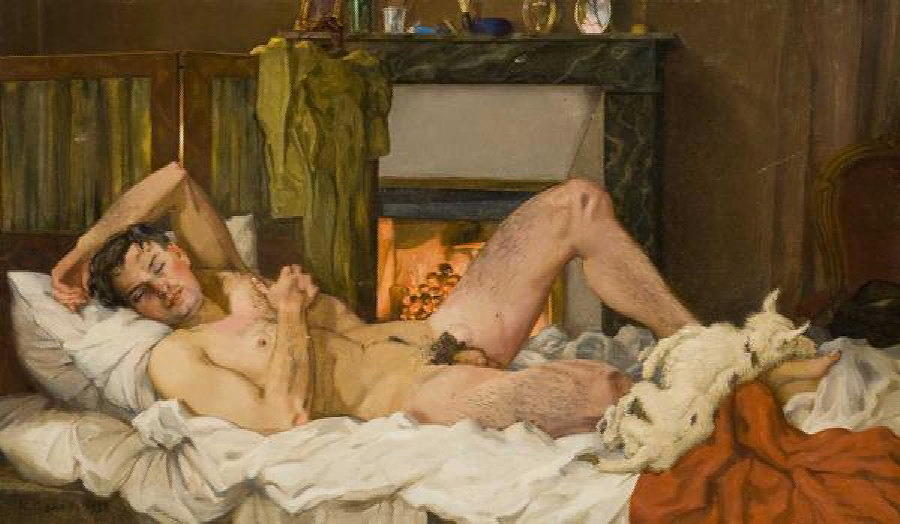 Sleeping Nude (Click for larger) In 1897 and again in 18989 he went to Paris and attended the studios of Filippo Colarossi and of Whistler. Neither the Realism of his Russian teachers nor the evanescent quality of Whistler's art was reflected for long in Somov's work. He turned instead for inspiration to the Old Masters in the Hermitage and to works of contemporary English and German artists, which he knew from visits abroad and from the art journals. Following the Russian Revolution, he emigrated to the United States, but found the country "absolutely alien to his art" and moved to Paris. He was buried at the Sainte-Genevieve-des-Bois Cemetery.
1874 – Winston Churchill, British prime minister and statesman (d.1965). He was Britain's wartime prime minister whose courageous leadership and defiant rhetoric fortified the English during their long struggle against Hitler's Germany. "I have nothing to offer but blood, toil, tears, and sweat," he stated upon becoming prime minister at the beginning of the war. He called Hitler's Reich a "monstrous tyranny, never surpassed in the dark, lamentable catalogue of human crime." Following the war, he coined the term "Iron Curtain" to describe the barrier between areas in Eastern Europe under Soviet control and the free West. In his wonderfully entertaining and informative biography of W. Somerset Maugham, Ted Morgan tells how Maugham once asked Churchill whether it was true, as the statesman's mother had claimed, that he had had affairs with other young men in his youth. "Not true!" Churchill replied. "But I once went to bed with a man to see what it was like." The man turned out to be musical-comedy star, Ivor Novello. "And what was it like?" asked Maugham. "Musical" Churchill replied. Another famous story goes that when Winston Churchill was Prime Minister, he was woken one freezing February morning by a Downing Street aide bearing the shocking news that a male Tory MP had been caught having sex with a naked guardsman in St James’s Park. Noting that it had been the coldest night of the winter, Churchill is said to have remarked: "Makes you proud to be British."
Nevertheless, Wilde lost no time in returning to his previous pleasures. According to Lord Alfred Douglas, Robbie Ross "dragged [him] back to homosexual practices" during the summer of 1897, which they spent together in Berneval. After his release, he also wrote the famous poem The Ballad of Reading Gaol. Wilde spent his last years in the Hôtel d'Alsace, now known as L'Hôtel, in Paris, where he was notorious and uninhibited about enjoying the pleasures he had been denied in England. Again according to Douglas, "he was hand in glove with all the little boys on the Boulevard. He never attempted to conceal it." In a letter to Ross, Wilde laments, "Today I bade good-bye, with tears and one kiss, to the beautiful Greek boy. . . he is the nicest boy you ever introduced to me." Just a month before his death he is quoted as saying, "My wallpaper and I are fighting a duel to the death. One or other of us has got to go."
His moods fluctuated; Max Beerbohm relates how, a few days before Wilde's death, their mutual friend Reginald 'Reggie' Turner had found Wilde very depressed after a nightmare. Wilde was buried in the Cimitiere de Bagneaux outside Paris but was later moved to Père Lachaise in Paris. His tomb in Père Lachaise was designed by sculptor Sir Jacob Epstein, at the request of Robert Ross, who also asked for a small compartment to be made for his own ashes. Ross's ashes were transferred to the tomb in 1950. The numerous spots on it are lipstick traces from admirers. The modernist angel depicted as a relief on the tomb was originally complete with male genitals. They were broken off as obscene and kept as a paperweight by a succession of Père Lachaise cemetary keepers. Their current whereabouts are unknown. In the summer of 2000, intermedia artist Leon Johnson performed a forty minute ceremony entitled Re-membering Wilde in which a commissioned silver prosthesis was installed to replace the vandalized genitals. Note: As a general rule, this site does not list persons' death dates - unless their death was something out of the ordinary, a reason for them to be remembered, or because we don't know their date of birth. However, Oscar Wilde desreves special treatment. His name is referenced in this collection of brief biographies far more than any other person. His life, trial, and death had a world-wide effect on gay history.
1904 – Robert Odeman (d.1985) German German classical pianist, actor, writer, and composer. He was a Holocaust survivor. Odeman was born Martin Hoyer in the town of Blankense, and later lived in Hamburg. He took the stage name Robert T. Odeman when he began his career as an actor and musician. After training to become a carpenter, Odeman studied classical piano, successfully performing throughout Europe for several years as a pianist. He played accompaniments for silent films in many cinemas in Hamburg. After suffering a hand injury, Odeman was forced to give up piano playing, and turned to theatre. In 1922, at the age of 17, Odeman met his first love, architecture student Martin Ulrich Eppendorf, who went by the name Muli. The two shared a close relationship for 10 years until Muli's death. A year after Muli's death, in 1933, Odeman became musical director of the New Theater in Hamburg. In 1935, Odeman opened a cabaret in Hamburg, which was shut down a year later by the Nazis, who claimed it was politically subversive.Odeman's new boyfriend, a bookseller, was pressured by the Gestapo to denounce him in 1937 and he was arrested under Paragraph 175, which outlawed homosexual acts between men, and sentenced to 27 months in prison. In 1942 he was again arrested and sent to Sachsenhausen concentration camp. During a forced march from the camp towards the Baltic Sea in April 1945, he escaped with other homosexual concentration camp prisoners. After the war, in 1959, Odeman met the 25-year-old Günter Nöring, with whom he lived until his death. Since the two were unable to marry, Odeman adopted his younger partner. After the adoption, Nöring used the name Günter Odeman-Nöring.
1914 – George Frederick Joffre Hartree (d.1988), known as Charles Hawtrey, was an English comedy actor and musician. Beginning at a young age as a boy soprano, he made several records before moving on to the radio. His later career encompassed the theatre (as both actor and director), the cinema (where he regularly appeared supporting Will Hay in the 1930s and 1940s in films such as The Ghost of St Michaels), through the Carry On films, and television. He became a leading participant in the Carry On films series of films throughout the 1960s and 1970s, mostly playing characters that ranged from the wimpish through the effete to the effeminate. His last film was Carry On Abroad (1972), after which he was dropped from the series. Hawtrey's growing alcohol consumption, which had noticeably increased since Carry On Cowboy in 1965, was beginning to affect his work. Little is known about Hawtrey's early years or later private life. He guarded his relationships very carefully, perhaps no surprise in an age when male homosexual behaviour in Britain was illegal and punishable by a prison sentence. His outrageous drunken promiscuity however, did not portray him in a positive light to an unsympathetic world; nor did his general demeanour and increasing eccentricity earn him many (if any) close friends. In her autobiography, Barbara Windsor wrote about Hawtrey's alcoholism, and his outrageous flirting with footballer George Best. He caused a news scandal in August 1984 when his house caught fire after he went to bed with a teenage boy and left a cigarette burning. Newspaper photos from the time show a fireman carrying an emotional, partially clothed and sans toupee Hawtrey down a ladder to safety.
Elliott grew up in Chinook, MT. He graduated from Chinook High School (class of 1942) and immediately joined the United States Navy. He served in Naval Air in the Pacific Theater of World War II. He was honorably discharged in San Francisco, and made Northern California his home for the rest of his life. He became a San Francisco police officer in 1949, serving until his retirement in 1975. As one of the City's ground-breaking Community Relations officers, he became the nation's first police liaison with the lesbian, gay, bi-sexual and transgender community and a tireless advocate for its individual members. During his 26-year career with the San Francisco Police Department, Mr. Blackstone helped mend the rift between the gay, lesbian, bisexual and transgender community and the police department. Before his assignment in 1962, the department's previous interaction with the community largely involved raids on bars and entrapment of gay men in bathrooms. "He didn't see any reason why homosexuality or cross-dressing should be illegal," said Susan Stryker, a historian and scholar who directed and produced a documentary, "Screaming Queens," which tells the story of a 1966 riot at Compton's Cafeteria in San Francisco's Tenderloin neighborhood. That event sparked San Francisco's transgender rights movement. After the riot, Mr. Blackstone trained other officers on transgender issues, and he is featured throughout the documentary. The Pride Foundation of San Francisco named him Lifetime Achievement Grand Marshal for the 2006 Gay Pride Parade.
1938 – Richard Lipez, born in Lock Haven, Pennsylvania, was an openly gay American journalist and mystery author, who resided in Massachusetts (d.2022). He is best known for his Donald Strachey mysteries, which were originally published under the pen name Richard Stevenson. Lipez matriculated at Lock Haven State College, and earned his Bachelor of Science in English with a minor in History. He undertook graduate studies in American Literature at the Pennsylvania State University, but, before finishing, opted to volunteer for the Peace Corps in 1962. He taught English language and composition to ninth grade public school students in Addis Ababa, Ethiopia, for the next two years. From 1964 to 1967, Lipez worked as a Peace Corps program evaluator out of Washington, DC. His work brought him to Ethiopia, India, the Caribbean, and Central America. "It was invaluable training as a writer," he told The Times Union. "We worked with top writers and editors writing reports that were essentially short non-fiction books in the style of the Atlantic." He also helped train new volunteers at the University of Utah. After his time in the Peace Crops, he served as the executive director for Action for Opportunity, an anti-poverty agency. In 1970, he left the organization to focus his attentions on writing and journalism full-time. Lipez wrote book reviews for The Washington Post and Newsday, as well as writing regular editorials for The Berkshire Eagle of Pittsfield, Massachusetts, where he lived with his then-wife Hedy and their two children. He also contributed articles, fiction, reviews, and satirical pieces to publications, such as Harper's, Atlantic and Newsweek. In 1979, he co-authored a thriller titled Grand Slam with Peter Stein. Two years later, in 1981, he saw the publication of Death Trick, the first book of an ongoing detective series revolving around fictional Albany private investigator Don Strachey. He wrote under the pseudonym Richard Stevenson in order to protect his identity and that of his family in the small Pittsfield community because the gay Strachey character reflected Lipez's own struggles with a confused sexual identity. While writing the novel, Lipez traveled to Albany on weekends to make furtive forays into the city's vibrant gay community. "It was an excruciatingly difficult time, as I was coming to realize, very slowly and painfully, that I was not heterosexual, I was homosexual," Lipez told The Times Union. Writing served as an outlet for his internal struggles, and ultimately served as his way of slowly coming out of the closet. In 1989, he and Hedy divorced and he has since been with his partner Joe Wheaton, a sculptor and furniture maker. Lipez and Wheaton met in 1990, when Mr. Wheaton was running a catering business and a restaurant, La Fête Chez Vous, in Stockbridge, Mass.; the eatery had previously been called the Back Room, the restaurant made famous by Arlo Guthrie's 1967 song "Alice's Restaurant." Mr. Lipez and Mr. Wheaton were among more than 70 same-sex couples who were married in towns across Massachusetts on May 17, 2004, the day the state became the first in the country to permit same-sex marriage. By the time of his death in 2022, the author was an open gay activist and his Don Strachey series has spawned a total of eight books, from Death Trick in 1981 to 2003's Tongue Tied. The novels found popularity in the gay book audience niche, although they continue to gain mainstream appeal as well. They have already been translated into German, French, and Spanish.
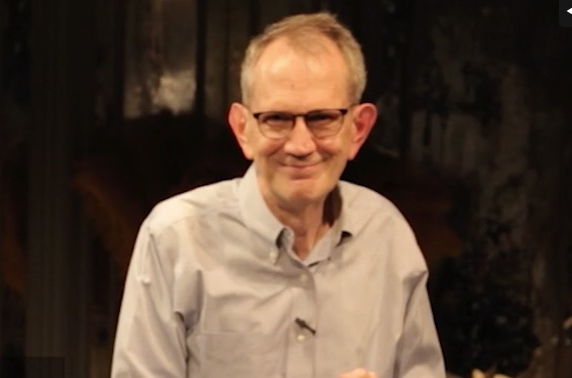
1941 – A professor of both English and drama, John M. Clum is the author of several books exploring gay issues in theatre and film. His 1992 work Acting Gay: Male Homosexuality in Modern Drama takes a three-part view of homosexual themes on the contemporary stage. In the section titled "Bodies and Taboos" the author, according to Theatre Research International critic Ian Lucas, discusses "three forms of representation found to be controversial or problematic in mainstream theatre—kissing, frontal nudity and drag." Lucas added that Clum links these actions to "an analysis of AIDS dramas." In other chapters, the author coins the phrase "closet dramas" to refer to theatrical themes that use a kind of code to indicate same-sex relationships where they may not otherwise be apparent to mainstream audiences. Acting Gay was revised in 2000 to reflect the more recent status of homosexual-themed theatre. Clum’s own plays have been produced in theaters around America and seven of his plays have been published. He has also directed over sixty professional and university theatrical and operatic productions. Clum has applied his theories to film in the 2002 book "He's All Man": Male Homosexuality and the Myths of Masculinity in American Drama and Film. Clum is gay. His life partner is Walter Melion.

1947 — Frank Loverde (or simply Loverde) was an American disco singer and musician born on this date (d.1990); Based in San Francisco, he was active during the 1980s. Loverde worked with record producer Patrick Cowley on his greatest success, Die Hard Lover, released in 1982. Working with Linda Imperial and her sister, Loverde made a name for himself on the San Francisco club scene as both a DJ and performer. During this time, the trio gained a record deal with Prism Records and released Iko-Iko, a record produced by Patrick Cowley and Michael Finden, in 1980. Loverde continued on the club circuit, occasionally working on studio projects, until 1982 when he was given an instrumental track by Patrick Cowley and asked to write lyrics for it. This track became "Die Hard Lover", which was recorded along with Linda Imperial and Peggy Gibbons. The trio, now calling themselves Loverde, had huge success with the single in 1982 and became celebrities in the Hi-NRG music community. Loverde's second single was "My World Is Empty Without You", another successful release which led to television appearances and a tour. By the time of the single's release, Patrick Cowley was becoming increasingly ill, suffering from AIDS, and was unable to contribute anything more than simple synthesizer riffs. Production credits on the single went to Bill Motley and Horus Jack Tolson. Following Cowley's death in 1982, Loverde was unable to repeat its earlier success with new music produced without Cowley's input. They recorded Backstreet Romance in 1983, but the record was a commercial failure. Loverde's last works were "Love Takes Me Higher" and "Manifestation of Love", both released in 1987. After the collapse of Megatone Records in 1988, Loverde was unable to find a new contract. In the late 1980s, Frank Loverde contracted the AIDS virus. The illness had obliterated the music industry in San Francisco and many of Loverde's acquaintances had already died from the virus. He died just before Christmas on December 20, 1990 at the age of 43.
1948 – Victor Bumbalo is an American actor and playwright. In New York City, Bumbalo became immersed in the Off- and Off-Off Broadway theater scene. He directed the American premiere of Mrozek’s The Enchanted Night and became the artistic director of the Soul and Latin Theater, one of the first successful street theaters. Their productions toured the streets of New York for four consecutive summers. As a gay man, he felt the need to put the lives of gay people on the stage. He wrote Kitchen Duty, produced by John Glines. Then came Niagara Falls, a comedy about a working-class family’s reaction to their gay son and his lover arriving unexpectedly for his sister’s wedding. This play has enjoyed a long life, playing in both mainstream and alternative theaters. Then the era of AIDS began. Almost everyone involved with Kitchen Duty died of the disease. Bumbalo volunteered with GMHC where he headed a team that took care of people with AIDS. He worked with the Anti-Violence Project and tried to avoid writing. Finally, confronting his demons, an award from the Ingram Merrill Foundation allowed him to complete Adam And The Experts, his first play dealing with AIDS. It was loosely based on his relationship with his friend, the novelist and journalist, George Whitmore, and their search for a way out of the nightmare. The New York Times said of the play "it is the most important play to deal with the AIDS crisis in gay society since William Hoffman’s As Is and Larry Kramer’s The Normal Heart." After the successful Off-Broadway run the play has had numerous productions in the United States, England, and Canada. What Are Tuesdays Like? follows a set of strangers in the waiting room of an AIDS clinic over several months. Bumbalo was able to expand the world of HIV and deal with issues of class, gender, and race. In 1995, David Milch, executive producer of NYPD Blue, having seen a reading of What Are Tuesdays Like?, invited Bumbalo to write an episode for his series. He moved from New York to Los Angeles. The success of his NYPD Blue episode led to a staff writing position on American Gothic. Since then he has written several movies of the week and a number of episodes for network television series. In addition, Bumbalo wrote for HBO’s animated series Spawn. Most recently he wrote and directed a short film, Two Boys. It has appeared in many festivals throughout the United States and won the Jury Award for Best Drama at the Beverly Hills Shorts Festival (2011) and Best Director at the ITN Distribution Film Festival (2012).
1955 – Kevin Conroy was an American actor and voice actor (d.2022). He is best known for his voice role as the DC Comics character Batman on the 1990s Warner Bros. television show Batman: The Animated Series, as well as various other TV series and feature films in the DC animated universe. Due to the popularity of his performance as Batman, Conroy went on to voice the character for multiple films under the DC Universe Animated Original Movies banner, the critically acclaimed Batman: Arkham video games, and in fall 2019 he will play a live action Bruce Wayne in the Arrowverse adaptation of Crisis on Infinite Earths. Conroy was born in Westbury, New York. Conroy was born into an Irish Catholic family which moved to Westport, Connecticut when he was about 11 years old. He moved to New York City in 1973 when he earned a full scholarship to attend Juilliard's drama division, studying under actor John Houseman. While there, he roomed with Robin Williams, who was in the same group as both Conroy and Kelsey Grammer. After graduating from Juilliard in 1978, he toured with Houseman's acting group The Acting Company, and the following year he went on the national tour of Ira Levin's Deathtrap. Filmreference.com listed Conroy as having been married, and having a child, though an interview with The New York Times in 2016 stated that he was single. He also said that he was gay. In the 2016 interview with The New York Times promoting the animated adaptation of The Killing Joke, Conroy revealed that he was gay. As part of DC Comics' 2022 Pride anthology, Conroy wrote "Finding Batman", a story that recounted his life and experiences as a gay man. It received critical acclaim upon release. He was married to Vaughn C. Williams at the time of his death. Conroy made an effort to conceal his homosexuality throughout most of his career. He spoke in "Finding Batman" about the discrimination he faced once potential collaborators and employers found out about his homosexuality. Conroy has said that on multiple occasions he had been removed from consideration for acting jobs due to his sexual orientation.
1978 – Born: Clay Aiken, American singer songwriter, actor, producer and author who began his rise to fame on the second season of the television program American Idol in 2003. Rolling Stone magazine featured Aiken on the cover of their July 2003 issue. In the cover article Aiken said, "One thing I've found of people in the public eye, either you're a womanizer or you've got to be gay. Since I'm neither one of those, people are completely concerned about me." In subsequent interviews he has expressed frustration over continued questions about his sexual orientation, telling People magazine in 2006, "It doesn't matter what I say. People are going to believe what they want." After several years of public speculation, Aiken confirmed that he is gay in a September 2008 interview with People magazine. On November 18, 2010, Clay went to Washington, D.C. at a Capitol Hill briefing talking about anti-gay bullying.
1980 – Pepe Julian Onziema is an LGBT rights activist from Uganda. In 2012, he was named a Global Citizen by the Clinton Global Initiative for his work in human rights advocacy. He began his human rights work in 2003, which has twice led to his arrest. He has since participated in organizing gay pride celebrations in Uganda. In 2012 he was invited to the Ugandan TV show Morning Breeze to join a debate about sexual minorities and their situation in Uganda. However the interview turned into a wild dispute when suddenly Martin Ssempa stormed into the show trying to discredit Onziema, waving fruits and vegetables while shouting in both English and Luganda over the moderator. The interview itself was uploaded to the internet and sparked internet memes. In 2013, he was shortlisted for the David Kato Vision and Voice Award, an award in honour of his slain friend and colleague, and fellow advocacy officer for Sexual Minorities Uganda, David Kato. In 2014, he was interviewed by John Oliver on the American television series Last Week Tonight about the human rights situation for LGBT people in Uganda. Stonewall selected Onziema as Hero of the Year in 2014. Onziema initially identified as lesbian, and now lives as a trans man. He lives in Kampala.
1988 – National League Baseball president Bart Giamatti fired umpire Dave Pallone for being gay. He had earlier been accused of being involved with a teenage gay prostitution ring, but had been cleared of the accusations.
1989 – Columbus Ohio mayor Dana Rinehart signed a hate crimes bill which included the term sexual orientation but asked the city council to remove the term sexual orientation from it, saying the term was vague and did not belong in the ordinance. The council refused.
1993 – President Bill Clinton signs a military policy directive that prohibits openly gay and lesbian Americans from serving in the military, but also prohibits the harassment of "closeted" homosexuals. The policy is known as "Don't Ask, Don't Tell." It was repealed on September 20, 2011.
1995 – The first US. government-sponsored advertising targeting gay men debuts on the eve of World AIDS Day when the Centers for Disease Control and Prevention releases a public service television announcement cautioning men to have “smart sex.”
2006 – South Africa is the first African country to legalize same-sex marriage.
[{(o)}]|[{(o)}]|[{(o)}]|[{(o)}]| [{(o)}]|[{(o)}] Today's Gay Wisdom:
[{(o)}]|[{(o)}]|[{(o)}]|[{(o)}]| [{(o)}]|[{(o)}] |
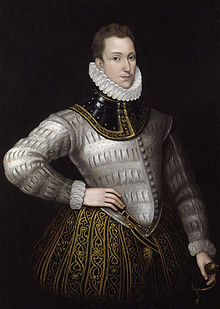
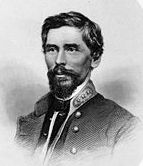
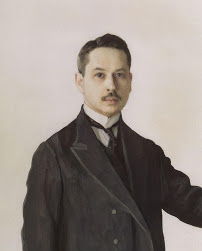 Self-portrait
Self-portrait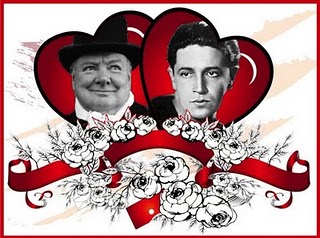
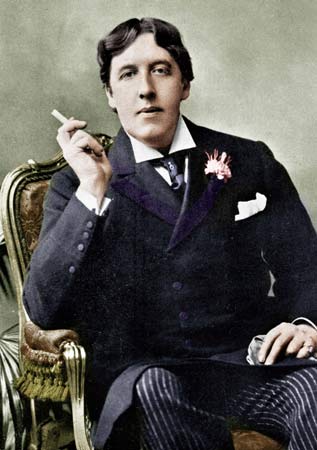
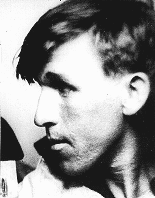
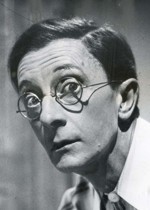

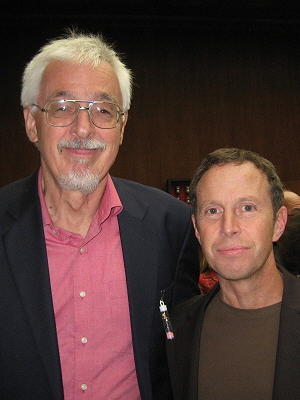 Lipez (L) with Joe Wheaton
Lipez (L) with Joe Wheaton Added 2024
Added 2024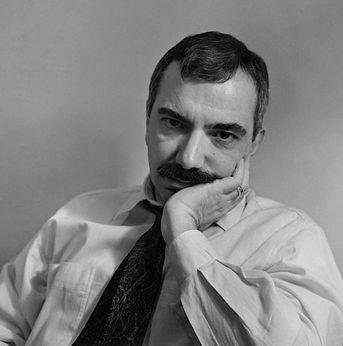
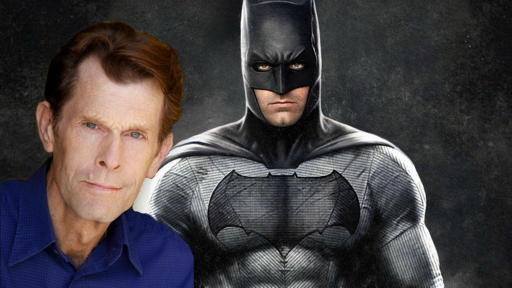

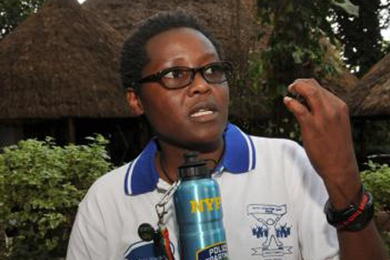
 Dave Pallone
Dave Pallone